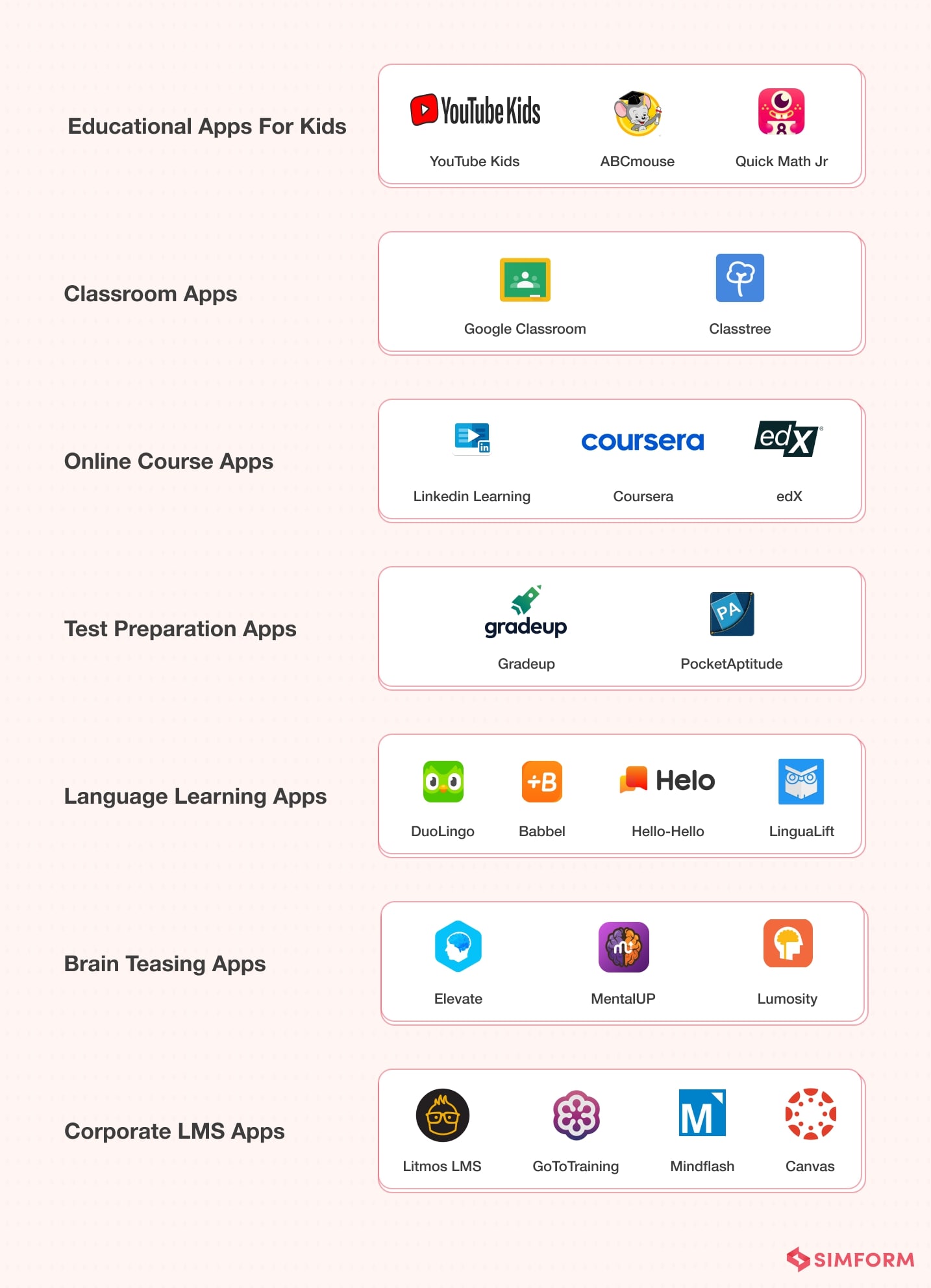Index Surge: Amplifying Your Insights
Stay updated with the latest trends and news across various industries.
Swipe Right for Knowledge: The Fun Side of Educational Apps
Discover how educational apps make learning fun! Swipe right for exciting tips, top picks, and engaging content that boosts your knowledge!
Top 5 Educational Apps That Make Learning a Game
In today's digital age, learning doesn't have to be a chore. With an abundance of educational apps available, students of all ages can turn their study sessions into exciting challenges. Here are the Top 5 Educational Apps That Make Learning a Game:
- Kahoot! - This interactive platform allows users to create and participate in quizzes that can be played in a group, making learning a competitive and fun experience.
- Duolingo - This popular language-learning app gamifies the process with levels, rewards, and engaging exercises that keep learners motivated.
- Prodigy - A math game that incorporates curriculum-aligned content, allowing students to solve problems and battle in a fantasy world.
- Socrative - This app creates interactive quizzes and instant feedback that enhance classroom engagement.
- Quizlet - Turn studying into a game with flashcards, quizzes, and games that help players master subjects in an enjoyable way.

How to Choose the Right Educational App for Your Learning Style
Selecting the right educational app is crucial for maximizing your learning potential. First, identify your learning style—whether you are a visual, auditory, or kinesthetic learner. Understanding this can help you pick an app that presents information in a manner that resonates with you. For instance, if you are a visual learner, look for apps that incorporate visual aids such as infographics, videos, or interactive diagrams. On the contrary, if you're an auditory learner, find apps that offer podcasts, audio clips, or spoken instructions. This alignment can enhance your engagement and retention of information.
Additionally, consider the features of the app that support your individual preferences. Evaluate it based on usability, accessibility, and supplementary resources. For example, does the app allow you to track your progress? Does it feature quizzes or flashcards for revision? Make a list of the top apps that catch your interest and compare them based on the following criteria:
- User interface and experience
- Content quality
- Feedback and community support
- Cost and subscription options
Are Educational Apps Really Effective? A Deep Dive
The effectiveness of educational apps has become a focal point of discussion among educators, parents, and learners alike. As technology continues to permeate our lives, these applications promise to make learning more accessible and engaging. Many experts argue that educational apps foster individualized learning experiences, allowing students to progress at their own pace. For instance, apps that adapt to a user's skill level can provide tailored exercises, making learning both efficient and enjoyable. However, research has shown that not all apps are created equal; the quality of content and the design of the user interface play crucial roles in their educational effectiveness.
Moreover, while educational apps offer convenience and flexibility, reliance solely on them for learning is a double-edged sword. A recent study found that students who integrated app-based learning with traditional methods achieved better results than those who used apps exclusively. This highlights the importance of blended learning, which combines digital and in-person educational strategies. Ultimately, the effectiveness of educational apps largely depends on how they are utilized in conjunction with conventional learning approaches to maximize engagement and retention.